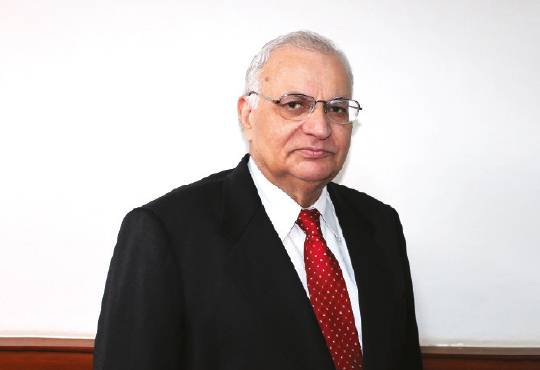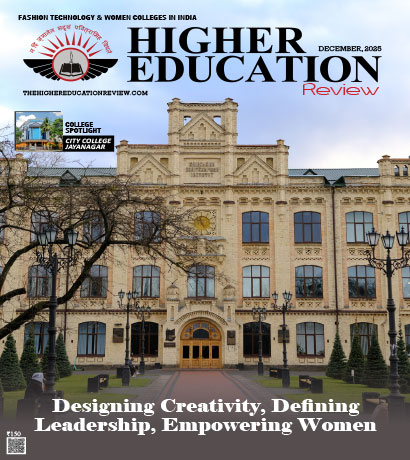Privatization of Higher Technical Education: Opportunity and Concerns

Prof. Prem Vrat, Pro-Chancellor, Professor of Eminence & Chief Mentor The NorthCap University
Privatization of higher technical education picked up momentum after 1987 when AICTE became statutory authority for regulating technical education in the country. Since, then private equity participation in setting new technical institutions has grown exponentially through, State technical universities as affiliating body for the purpose of admission, curriculum design, examinations and evaluation for results. Though it grew in quantitative terms; but by and large, this growth has been under-managed and over-controlled. Misplaced priority of the private edupreneurs and myopic perceptions have not allowed them to tap its true potential and current perception of low quality and employability of engineering graduates has further eroded the brand-equity of engineering education as compared to what it used to be.
In addition, a large number of state private universities created after 2005 have added to a new stream of technical institutions, which have made use of their autonomy to take quick decisions in the academic domain and governance of the university. However, again due to the high focus on numbers, physical infrastructure and low focus on talented faculty being attracted, motivated and retained, there are huge imbalances created due to knee-jerk responses to the market dynamics. Unless we introspect and do course correction, it may become a missed opportunity.
Market forces have anyway started impacting these institutions and many are either closed or are struggling to find adequate enrolments even with diluted quality of intake. However, the so-called market forces are also myopic with their own short-term knee-jerk responses to placements in a particular branch and are more governed by the "follow the crowd mentality" with almost everyone seeking admission in CSE/IT while the core engineering disciplines required for growth and development of the economy are struggling to get even the minimum critical mass to sustain them as a department.
Major Concerns and Suggestions
Some major concerns/side-effects of privatization of the technical education system are:
1. Misplaced priority in management of institutions by focusing more on physical infrastructure like land and building and low focus on caliber, qualifications of faculty, cadre ratios; student: teacher ratios working conditions and academic environment of the institution.
2. The concept of low employability of engineering graduates has been over-hyped. This has created a sense of scare among parents and society about the return on investment in the education of their ward. While honest concerns for enhancing employability by developing knowledge, skills, and attitudes holistically are valid, over-hype on it can be counterproductive. No institute can develop a student to be industry-ready on day one because the requirements of industry vary and variety of expectations from engineering graduates on day one is to an extent is infeasible. A balanced development inculcating right attitude and desire for learning to learn together with sound basic technological knowledge of the domain is what an institute could do and should be expected to do.
3. There should be an upper limit of admissions in a particular branch in private technical universities so that imbalance in admissions in different branches can be avoided. Due to autonomy enjoyed by the private universities, there may be a tendency to keep on changing intake numbers to respond to markets needs immediately. If we deliver quality, then every branch of engineering has a scope and potential and if we simply respond to market forces and offer admissions disproportionate to the intrinsic academic resources at the institute; we may eventually be diluting the brand equity of even sought after programmes such as CSE.
4. We need to change the mindset where physical resources are treated as assets and intellectual resources (primarily faculty) as liabilities. The only mantra for success is to attract, motivate, retain outstanding quality faculty to the institute, allow them the freedom to perform and enable them to develop and grow with a deep sense of commitment and a sense of ownership. A great teacher alone can transform the students through inspiration and involvement.
5. Industry must not watch the quality degradation as an unconcerned onlooker. The ultimate customer of higher technical education in the industry, government and the society at large and a pro-active, hand-holding of institutions to nurture talent will be in the best interest of the industry because 'hunt for talent' due to talent crunch is already visible. It is the joint responsibility of institute-industry-government and regulators to work in a team spirit to nurture talent to tap the potential demographic dividend. Otherwise, it may lead to becoming a demographic disaster.
If we focus on quality in all its dimensions then and then only it will be a win-win proposition for all stakeholders. If we ignore quality and focus on short-term myopic goals; it may become an opportunity lost.
Prof. Prem Vrat
An outstanding academic, Prof. Prem Vrat, is the Pro-Chancellor; Professor of Eminence and Chief Mentor at The NorthCap University, Gurugram (formerly ITM University, Gurugram). He has extensive experience of more than 50 years in teaching, research, management development, and consultancy. He has guided 41 Ph.D. theses, 118 M.Tech and 65 B.Tech major projects on Industrial Application of Systems Approach and Management Science and has published more than 455 research papers in reputed journals and proceedings of international and national conferences.
In addition, a large number of state private universities created after 2005 have added to a new stream of technical institutions, which have made use of their autonomy to take quick decisions in the academic domain and governance of the university. However, again due to the high focus on numbers, physical infrastructure and low focus on talented faculty being attracted, motivated and retained, there are huge imbalances created due to knee-jerk responses to the market dynamics. Unless we introspect and do course correction, it may become a missed opportunity.
Market forces have anyway started impacting these institutions and many are either closed or are struggling to find adequate enrolments even with diluted quality of intake. However, the so-called market forces are also myopic with their own short-term knee-jerk responses to placements in a particular branch and are more governed by the "follow the crowd mentality" with almost everyone seeking admission in CSE/IT while the core engineering disciplines required for growth and development of the economy are struggling to get even the minimum critical mass to sustain them as a department.
Major Concerns and Suggestions
Some major concerns/side-effects of privatization of the technical education system are:
1. Misplaced priority in management of institutions by focusing more on physical infrastructure like land and building and low focus on caliber, qualifications of faculty, cadre ratios; student: teacher ratios working conditions and academic environment of the institution.
2. The concept of low employability of engineering graduates has been over-hyped. This has created a sense of scare among parents and society about the return on investment in the education of their ward. While honest concerns for enhancing employability by developing knowledge, skills, and attitudes holistically are valid, over-hype on it can be counterproductive. No institute can develop a student to be industry-ready on day one because the requirements of industry vary and variety of expectations from engineering graduates on day one is to an extent is infeasible. A balanced development inculcating right attitude and desire for learning to learn together with sound basic technological knowledge of the domain is what an institute could do and should be expected to do.
3. There should be an upper limit of admissions in a particular branch in private technical universities so that imbalance in admissions in different branches can be avoided. Due to autonomy enjoyed by the private universities, there may be a tendency to keep on changing intake numbers to respond to markets needs immediately. If we deliver quality, then every branch of engineering has a scope and potential and if we simply respond to market forces and offer admissions disproportionate to the intrinsic academic resources at the institute; we may eventually be diluting the brand equity of even sought after programmes such as CSE.
4. We need to change the mindset where physical resources are treated as assets and intellectual resources (primarily faculty) as liabilities. The only mantra for success is to attract, motivate, retain outstanding quality faculty to the institute, allow them the freedom to perform and enable them to develop and grow with a deep sense of commitment and a sense of ownership. A great teacher alone can transform the students through inspiration and involvement.
5. Industry must not watch the quality degradation as an unconcerned onlooker. The ultimate customer of higher technical education in the industry, government and the society at large and a pro-active, hand-holding of institutions to nurture talent will be in the best interest of the industry because 'hunt for talent' due to talent crunch is already visible. It is the joint responsibility of institute-industry-government and regulators to work in a team spirit to nurture talent to tap the potential demographic dividend. Otherwise, it may lead to becoming a demographic disaster.
If we focus on quality in all its dimensions then and then only it will be a win-win proposition for all stakeholders. If we ignore quality and focus on short-term myopic goals; it may become an opportunity lost.
Prof. Prem Vrat
An outstanding academic, Prof. Prem Vrat, is the Pro-Chancellor; Professor of Eminence and Chief Mentor at The NorthCap University, Gurugram (formerly ITM University, Gurugram). He has extensive experience of more than 50 years in teaching, research, management development, and consultancy. He has guided 41 Ph.D. theses, 118 M.Tech and 65 B.Tech major projects on Industrial Application of Systems Approach and Management Science and has published more than 455 research papers in reputed journals and proceedings of international and national conferences.

